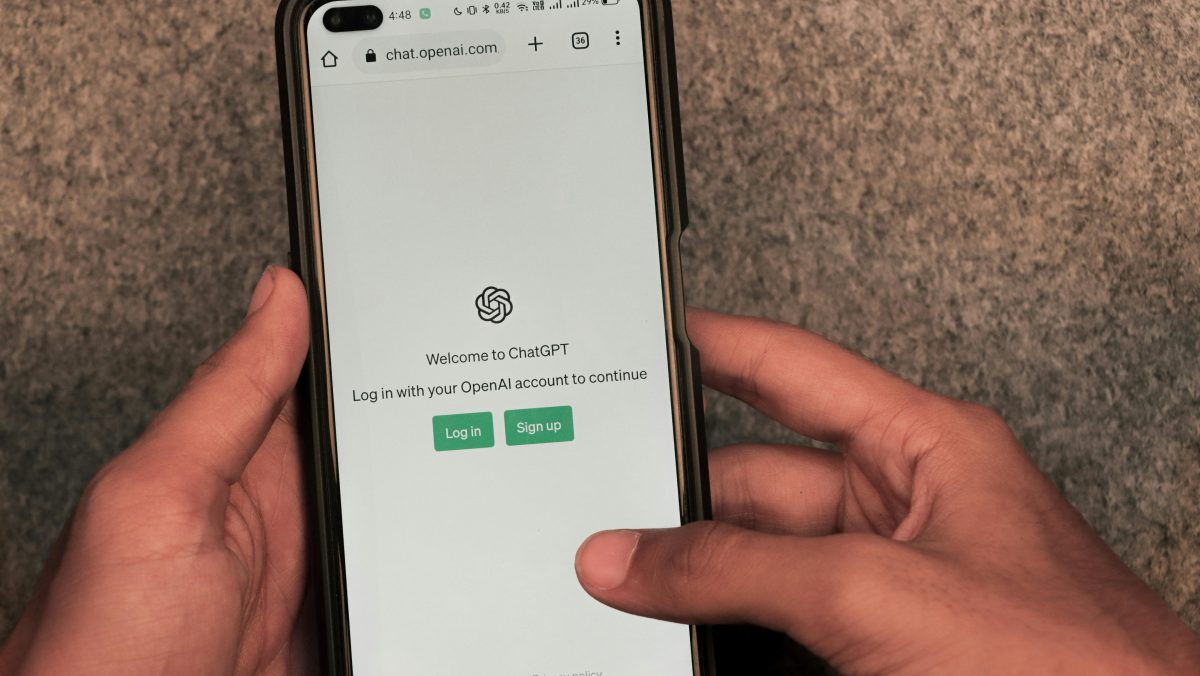It is an essential tool that is gradually becoming part of our lives, even becoming our best advisor and ‘friend’. What we should ask ourselves is how reliable or private everything we tell this artificial intelligence is.
AI as a huge data warehouse
We must be aware of how artificial intelligence works. Beyond complex algorithms, it is a tool that feeds and learns based on data. We could consider it a great collector of information of any kind, everything helps it to continue advancing, learning and becoming better and more efficient.
In this case, we could differentiate between two forms of ‘collection’: that which is extracted from the Internet through public information available on websites, forums, social networks, etc.; and, on the other hand, the information that we ourselves offer through its ‘chat’. In both cases, it is information that it uses for training.
In this context, texts with personal information, our own images or voice commands given through smart speakers, for example, will be used to improve current models, with no distinction between whether it is personal or not.
Similarly, AI is capable of analysing all this information ‘beyond the human eye’. For example, when we upload an image, we are also uploading metadata. That is, information about the device, location, time, etc. Everything helps AI get to know us a little better.
In this sense, it does not matter if you interact with AI with this type of information. As mentioned above, these tools scour the Internet to find personal photos or written texts, if they are publicly available. If it is on the Internet, it is available to everyone, including artificial intelligence.
What are the risks?
The risks directly attack our own privacy and even how we browse the web. Below is a series of issues to be addressed, with an explanation of each case:
- Loss of privacy. It is a one-off occurrence, but on several occasions I have come across people who comment that AI is like their ‘best friend’ or their ‘psychologist’. In these types of conversations, a huge amount of personal and confidential information is being offered, and this is stored for processing by AI and those who administer it. Our personal life and privacy are completely lost.
- Leakage of personal data. This seems to be the most obvious case: if we give our information to AI, it is possible that it could end up in the wrong hands. Similarly, we must remember that AI is trained with our data, so it could provide answers to other users linked to personal information. For example, in 2023, Samsung employees uploaded confidential information to the ChatGPT chat. This was stored on the company’s servers, resulting in an information leak.
- Unauthorised access to our data. Publicly exposed data could be used by AI without consent or approval. When you have, for example, a public social network, your photos, comments and general information are exposed for storage and review by AI.
- Identity theft or ‘deepfakes’. It was mentioned earlier that AI also processes images and voice. Now imagine that it can replicate the image of our face and our personal voice almost exactly. We are talking about it being able to impersonate us in the vast majority of scenarios, or use our image in contexts where it has not been approved.
- Personalised responses. By training AI with our information, we are generating a personalisation of ourselves. This could be used by the AI itself or by third parties to offer us the response we want or guide us to a supposed specific end. Our information is money, and once we hand it over, we do not know whose hands it may end up in.
- Personal biases. Although closely related to the above, this may not be a privacy issue in itself. Even so, AI can be trained and offer the corresponding responses based on biased and discriminatory data based on race, religion or other factors.
Protecting our privacy
At this point, we know that our information is the basis for artificial intelligence learning. AI feeds on all kinds of data to become increasingly efficient, but how can we protect ourselves?
The most obvious and direct thing would be to think, first of all, about what we want to tell artificial intelligence and how to guide it so that we do not give away private data. We can make up a story or give examples without giving away our personal data. AI is neither our friend nor our psychologist; it is a ‘machine’ that feeds on our information, and the less it knows about us, the better. Likewise, it is especially important not to share confidential data or passwords in chats.
Whenever possible, try to clear the history of ‘chats’ generated with AI, or the voice commands of the corresponding intelligent assistants. Do not store it indefinitely, as the risk increases.
Consider using artificial intelligence that has good privacy practices among its policies. Similarly, you may want to consider using open-source AIs, as they are usually audited and reviewed globally.
Review those public web environments where we have personal information. As mentioned, AI constantly scans social networks, blogs, general websites, etc. for information. Exposing our image or data to the Internet in a public manner also allows us to be exposed to artificial intelligence.
An important point that is not commonly done is to read and understand the terms and conditions of the privacy policy regarding the use of artificial intelligence. It is important to take the time to understand how each company handles our data.
We must give our personal information the importance it deserves and not freely expose it on any type of platform. Artificial intelligence is a fantastic tool, but as such, we must take the necessary precautions and avoid giving away more information than necessary. Our goal is to learn to coexist with our ‘new digital friend’ without losing our own identity.
